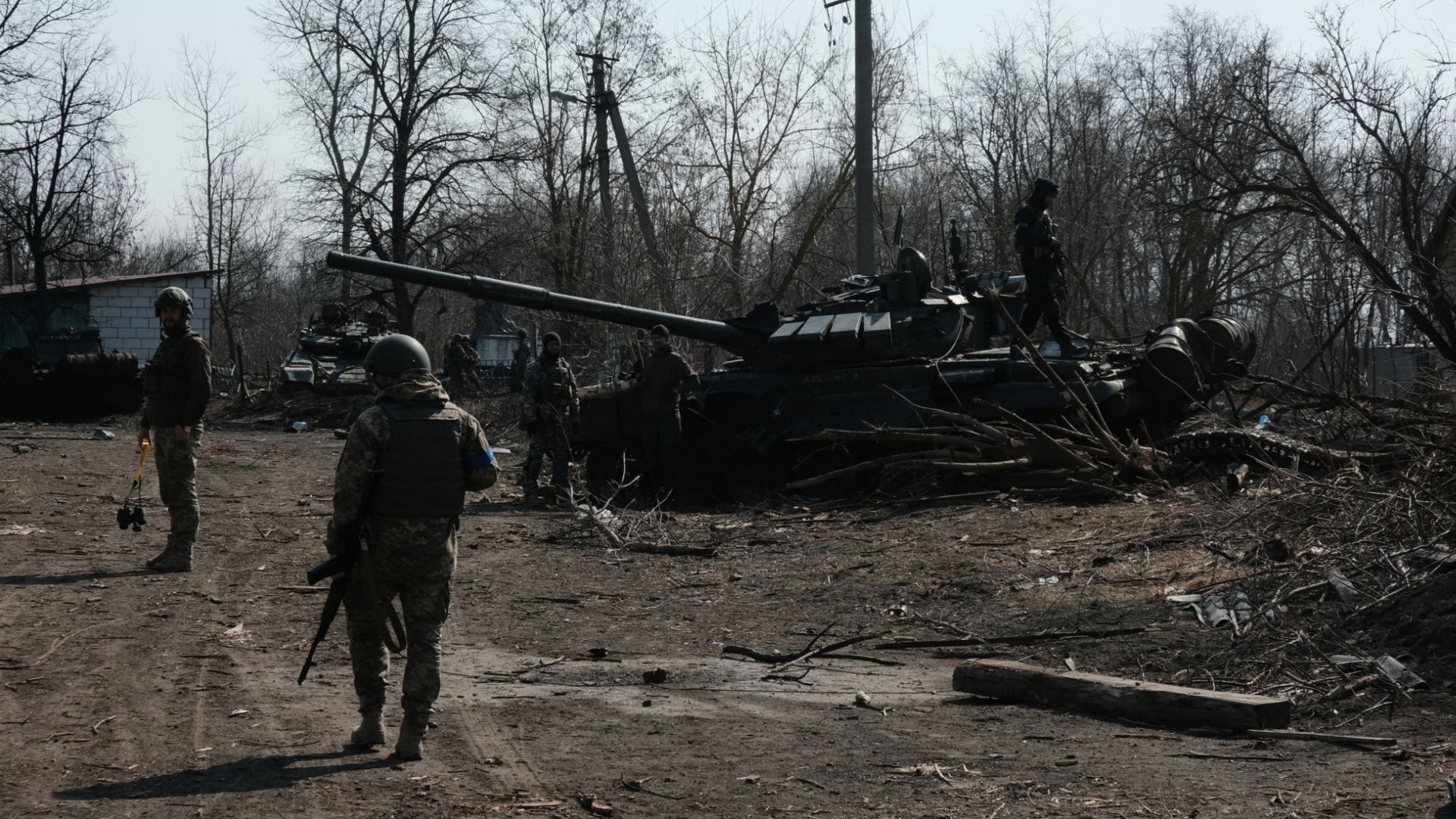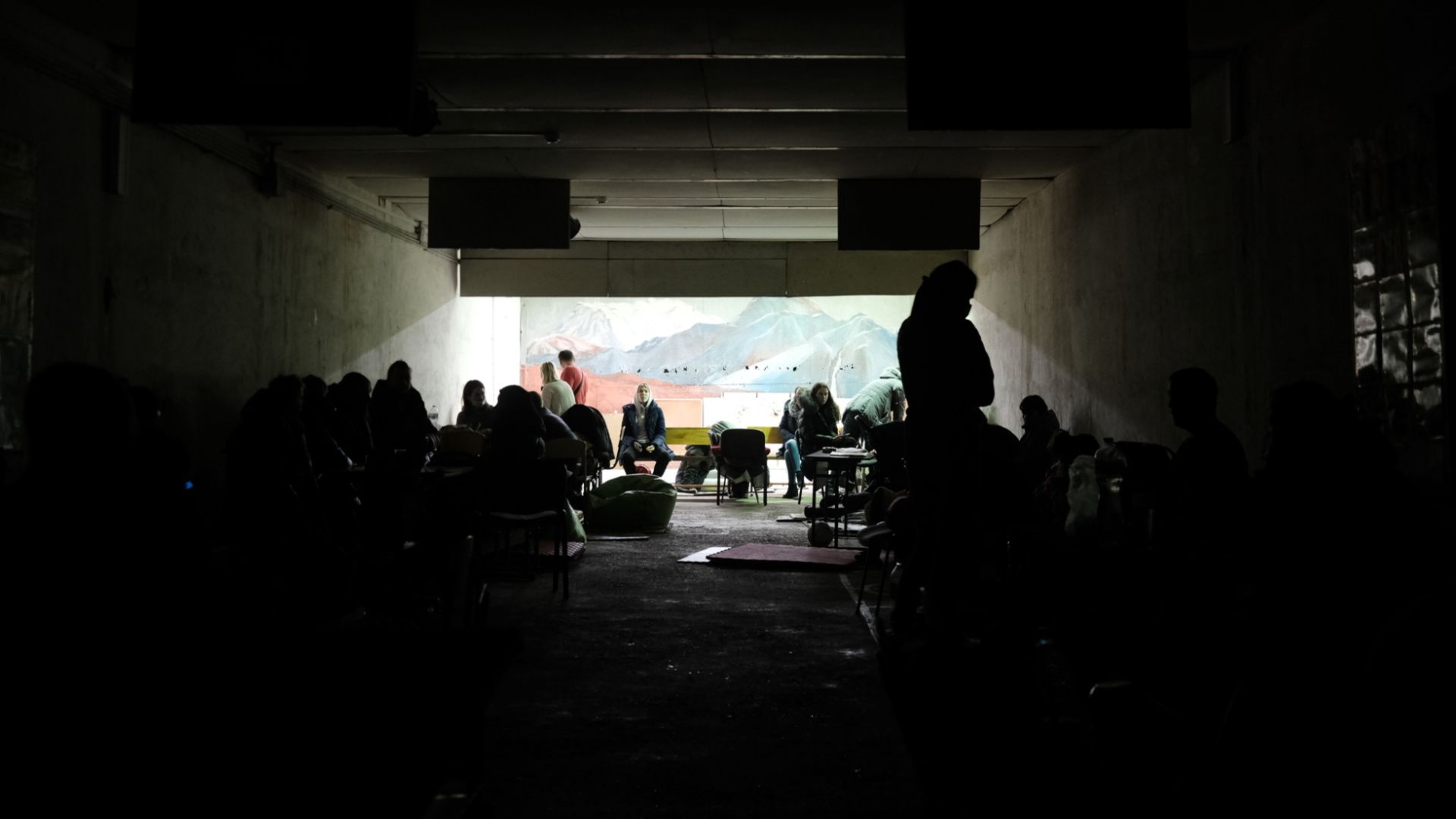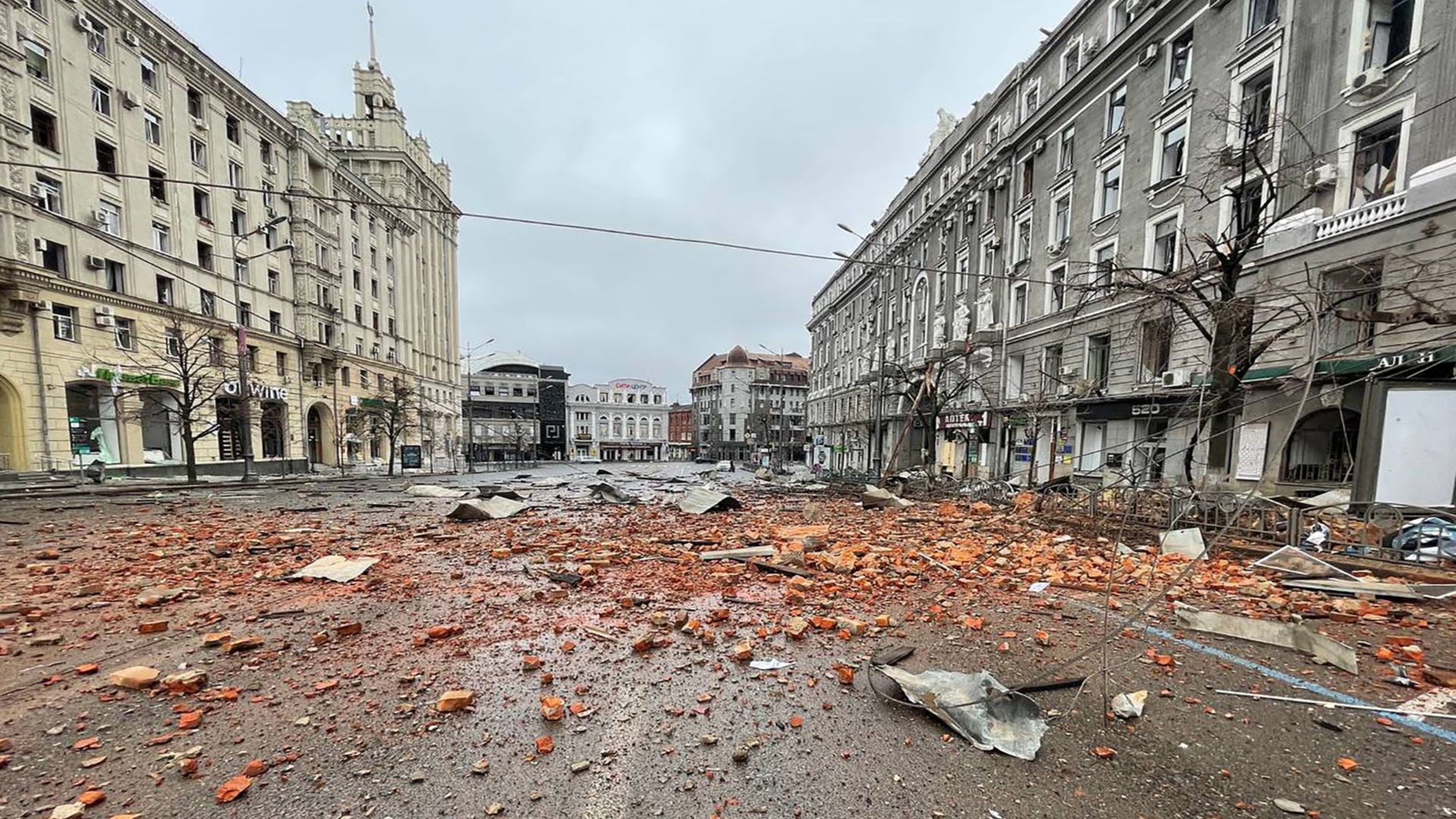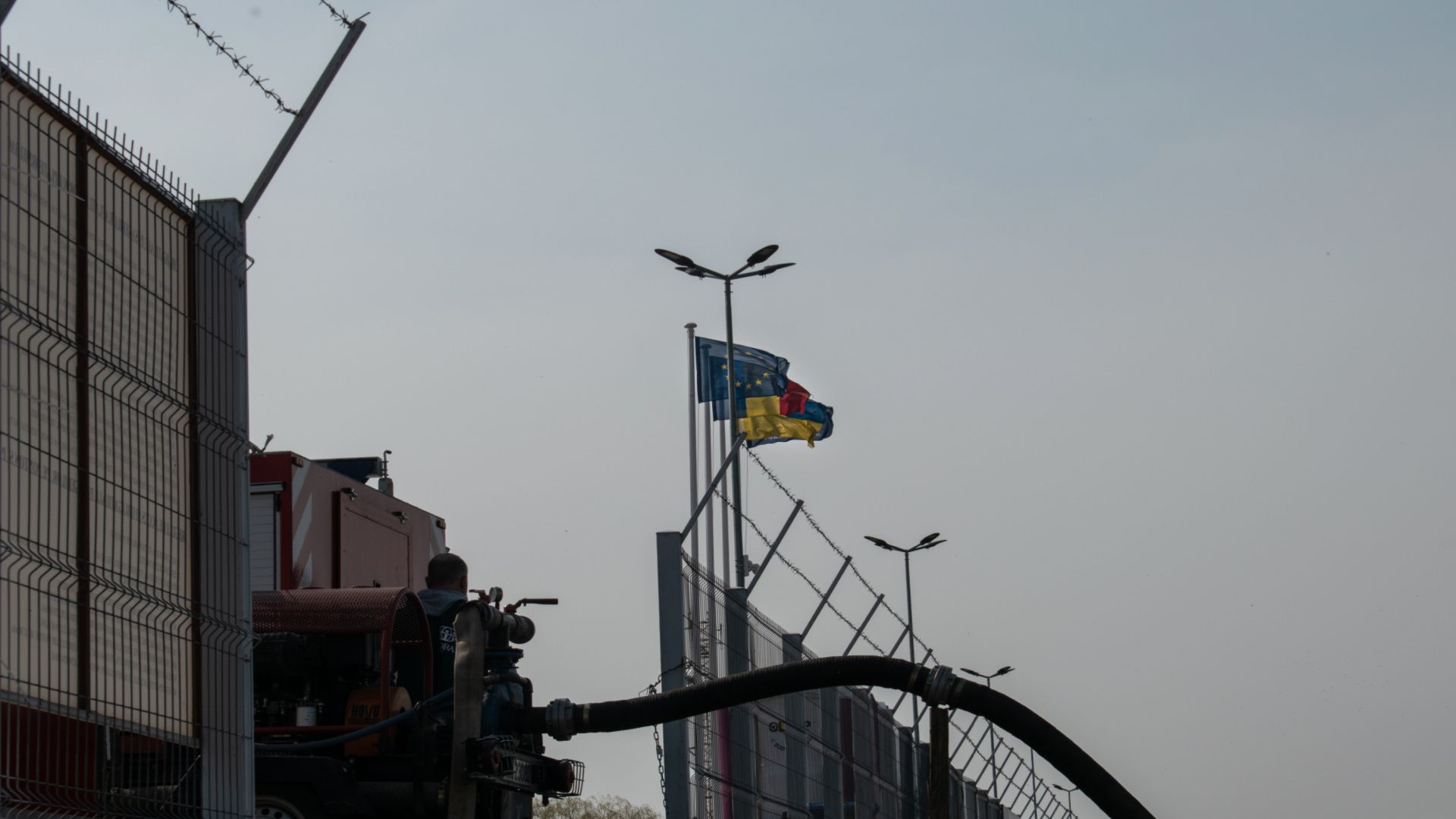Ground Shift: Interview with Professor Chris Miller
What do Ukraine’s lightning battlefield gains mean for global politics? Chris Miller on the shifting calculations in Moscow, Beijing, and the West.
In a stunning counter-offensive, Ukraine has retaken hundreds of square miles of its territory from Russian military occupation in the past two weeks. Ukrainian armed forces have now regained control of much of the northeastern part of the country, including the city of Kharkiv, while Russian troops rapidly retreat. Ukraine’s military has also made gains in the country’s south. Media coverage of the victories shows residents of liberated cities tearfully welcoming Ukrainian soldiers, while hasty Russian withdrawals have left behind weapons, vehicles, even food and clothing. But these developments are bringing important consequences outside the country’s borders too. Russia’s dramatic and surprising losses will affect the dynamics around Vladimir Putin in Moscow, as well as how key Kremlin allies, such as China, see the conflict—and Putin himself. Political and military leaders in the West could adapt their thinking to Ukraine’s military progress, as well, as they monitor the situation and decide how to back Kyiv. What are the full geopolitics implications of the counter-offensive?
Chris Miller is an assistant professor of international history at Tufts University’s Fletcher School of Law and Diplomacy and the co-director of the school’s Russia and Eurasia Program. To Miller, it’s now clear within Russia that Putin’s strategies for the war—touting its successes, downplaying its costs, and using Russian energy supplies to pressure the West—are all failing. Putin has put himself in an untenable position, Miller says, by constantly framing the war as easy to win, because Putin can’t now admit to the substantial human and material resources Russia needs to push back against the Ukrainian advance. Meanwhile, his most important ally, China, now seems to have made a very poor decision in sticking close to Moscow, with Russia looking increasingly weak as a global power. As Miller sees it, Kyiv’s gains on the ground are changing how Western leaders perceive possible resolutions of the conflict—but while these gains make a Ukrainian victory more likely, the ultimate outcome of the war is still unclear.
Michael Bluhm: What do you make of these recent and ongoing battlefield gains?
Chris Miller: It’s always difficult to make predictions in a war, but everyone has regularly underestimated Ukraine’s capabilities since the start of this one.
Clearly, the Ukrainians have demonstrated the ability to launch a meaningful counter-offensive against the Russians. Clearly, the Russians have demonstrated an inability to properly defend against it—unable to have intelligence about where Ukraine is going to attack and unable to maintain the reserve capacity to reinforce positions facing pressure from the Ukrainians.
We don’t know to what extent that’s generalizable across all Russian positions or whether it’s somehow unique to the Kharkiv area. Insofar as it’s generalizable, Russia’s defeats during the past couple of weeks will weaken its ability to stand up to Ukrainian pressure that much more.
I don’t think that means Ukraine is about to push the Russians out of the country in the coming weeks. But it does mean that Ukraine has a plausible story it can tell about how, if it keeps getting arms and the support it needs from the West, it can defeat the Russians over the coming months.
Bluhm: How do you see these shifts on the ground in Ukraine affecting Putin’s position in Russia?
Miller: It’s clearly embarrassing for him. Putin has identified this war with himself since day one. He promised Russians that it would be a straightforward operation—and within Russia, it’s generally still described as a “special military operation,” to emphasize that it’s not going to impose vast costs on the Russian people.

But it’s become clear over the past six months that Russia can’t achieve its goals in Ukraine without a drastic mobilization of the Russian populace and economy. And even that might not achieve Moscow’s goals. But the set of half-measures in play now is less likely to work still.
Although Russia started the war with much larger armed forces than Ukraine, Russia is facing issues with a lack of personnel—which shows the dilemma Putin’s set up. He’s afraid to organize a general mobilization because he’s promised a cost-free or at least low-cost war—and yet he’s got serious manpower issues because he can’t call up large number of Russians and force them to serve in the army.
He’s facing pressure both from the anti-war doves and the pro-war hawks. The doves can’t articulate this view in public, but people are obviously asking in private, What’s the point of this whole war, anyway? The hawks are saying, Let’s mobilize. Let’s call up tens of thousands more troops, let’s throw the economy into a wartime footing, and let’s win.
Putin stands uncomfortably in the middle, asserting maximalist goals of defeating Ukraine while being unwilling to devote the resources needed to have a real shot at it.
It’s become clear over the past six months that Russia can’t achieve its goals in Ukraine without a drastic mobilization of the Russian populace and economy. And even that might not achieve Moscow’s goals.
Bluhm: You mention that Putin can’t draft and mobilize all the country’s able-bodied males of fighting age. What options does he have to reverse Ukraine’s gains—whether that’s through manpower or weapons or economic tools?
Miller: This is the dilemma he faces. There’s a chance that the muddle-through option could work—in other words, that Russia could maintain the current level of resources Putin’s devoted to the war without trying to bring new men into the Russian army and that, maybe, it’ll work. But any sober observer, outside Russia or within, will say it’s unlikely.
At the same time, Putin’s also been pursuing a strategy of pressuring the West economically, hoping that the more European energy prices increase, and the more Western consumers feel the pain from expensive oil and gas, the less the West generally will be willing to support Ukraine. But that hasn’t happened either—so far. It’s clear that Russia can drive up energy prices, especially in Europe, but it’s not clear that this will force concessions from European leaders.
Most likely, Russia will continue pursuing these two strategies, for at least some time, and hope that they produce different results—which I wouldn’t say is a particularly rational policy-making process.

Bluhm: Russia has used Belarus as a staging ground for its invasion of Ukraine. Belarussian President Alexander Lukashenko, who’s an unpopular autocrat, relies on Putin for political support. How do you think Russia’s apparent weakness on the battlefield will affect Lukashenko’s position?
Miller: It puts Lukashenko in a tough position. He didn’t want to see Ukraine forced back into Russia’s sphere of control. For three decades, he’s been playing, as effectively as anyone, the game of extracting benefits from Russia while also asserting his independence from it—and then using that to demand the next round of benefits.
But since he fabricated his re-election in 2020 to such a degree that he completely lost the support of the majority of Belarussians, Lukashenko’s had no choice but to do whatever the Russians say, because his only remaining supporters are in Moscow.
Now it looks like he’s bet on a not-very-impressive horse, but he has no other options. He’s going to stick with the Russians as long as he can, because if Russia were defeated in Ukraine—or if Russia had a change of government—that would be a catalyst for a change of government in Belarus.
Bluhm: Ukraine isn’t the only place where Russia has troops; it has them stationed in the Transnistria region of Moldova and in South Ossetia in Georgia, as well. Russia-backed separatists in both areas claim independence, though the international community has rejected these claims. How could Russia’s apparent setback in Ukraine affect the dynamics in Georgia and Moldova?
Miller: Russia has low numbers of forces in both those territories. In Transnistria, it’s a couple of hundred soldiers with low levels of training and very little equipment. They’re more glorified police officers than soldiers. I don’t think Russia’s losses in Ukraine will affect the dynamics in either Transnistria or South Ossetia.
The doves can’t articulate this view in public, but people are obviously asking in private, What’s the point of this whole war, anyway?
But if Ukrainians do manage to push Russia back further—which is still very much an if—that will call some of Russia’s other commitments into question. I don’t think we should expect dramatic changes in either of those conflicts, even in the case of further Russian losses, but we should expect a swing in power toward the Moldovan and Georgian governments in their disputes with Moscow over these territories.
Bluhm: China has chosen to align itself with Russia in the war, even though Beijing has adhered to Western sanctions against exporting military technology to Moscow. How does Russia’s apparent weakness affect China’s position?
Miller: It is a bit embarrassing for China. As you say, China has been hedging since the start of the war—but it was hedging on the assumption that Russia would win or achieve some sort of result that looks close to victory. Now the opposite’s happened.
Beijing has been hedging between the West, on the one hand, and a Moscow, on the other, that looks a lot less competent than it did seven months ago—and particularly, a lot less competent in the sphere where Russia has historically punched above its weight: military capability. If Russia’s military isn’t nearly as impressive as we thought, then Moscow looks like a much less relevant player, because realistically, it has very few other levers of power that it can pull.

If it is true that Russia is less relevant, then it looks like a strategic error on China’s part to have hedged between a less relevant, less powerful, less impressive Russia and a more influential, more powerful West. I don’t think Chinese President Xi Jinping is going to admit that error, but the better Ukraine does in the war, the less intelligent this Chinese policy of hedging will appear.
Bluhm: You mention the enormous increases in energy prices in Europe, which have exceeded 500 percent in some countries. The biggest European countries recently agreed to set a price cap for Russian oil, and the European Union has been trying to do the same for Russian natural gas. Putin, meanwhile, has been reducing gas supplies to Europe, to put pressure on Ukraine’s allies. How do you think Ukraine’s battlefield gains might affect European countries’ thinking about energy?
Miller: Ukraine’s battlefield gains are unlikely to affect the energy calculus on the European side, because the changes underway in Europe aren’t designed to be relevant over a matter of weeks or months but over years. Regardless of what happens on the battlefield in the next three or six months, Europe will be buying substantially less Russian gas in a couple of years’ time—maybe zero, maybe a small amount, but far less than it’s buying today.
We’re not seeing an increasing likelihood that Russia will use nuclear weapons—but rather that Russia will threaten to use them, so it can get those threats in the headlines of Western newspapers.
The same is true with oil. European oil imports are going to decline regardless of what happens on the battlefield. Europe has made a generational decision to dramatically reduce its reliance on Russian energy. It concluded that its prior decision to integrate with Russia through energy supplies was a mistake. And that conclusion isn’t going to change, whether Ukraine continues its counter-offensive or Russia manages to fight back.
Bluhm: How does this shift on the battlefield affect calculations in the United States and NATO?
Miller: The Russian withdrawals will bring back to the forefront the debate about whether Moscow might escalate the war in other ways. We should expect the Kremlin to bring back to the forefront the question of nuclear weapons. We’re not seeing an increasing likelihood that Russia will use nuclear weapons—but rather that Russia will threaten to use them, so it can get those threats in the headlines of Western newspapers.
That’ll probably have an unfortunate impact on how some European policy makers think of Russia. There’s still residual concern among some Europeans that the war must be ended in a way that doesn’t humiliate Russia, as French President Emmanuel Macron has said. That’s not the right frame, though, in my opinion.

If Russia loses the war, it’s going to be humiliating for Russia to be defeated by a far smaller country. Some people in Europe—in France and Germany, in particular—believe that they can find a quick solution to the war, so long as the Russians feel good at the end of the process. I think that’s naive, but this discussion will come back to the fore now that Ukraine is having some successes.
Bluhm: In May, you indicated that the most likely outcome of the war would be a settlement, rather than an outright victory for either side. Given what Ukraine has recently accomplished, how do you see the most likely outcomes today?
Miller: It’s more likely now that the war ends with something like an unambiguous Ukrainian victory. But I still think that’s probably not the base case. We should still be thinking about a negotiated process between Russia and Ukraine at the end of the fighting. The questions of Crimea and the territories that Russia controls in the Donbas—the two easternmost provinces in Ukraine—remain to be dealt with. So the parameters of any negotiation have certainly shifted in Ukraine’s favor, but that doesn’t mean that we shouldn’t be asking, How do we eventually bring the war to a conclusion? There will be some sort of discussion at the end of it; what do we know now about what that discussion might look like?
This piece was republished from The Signal.

